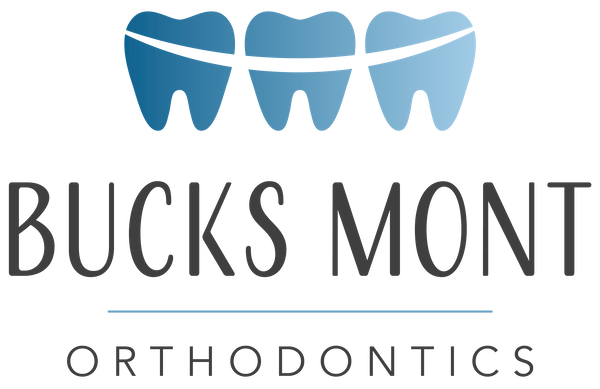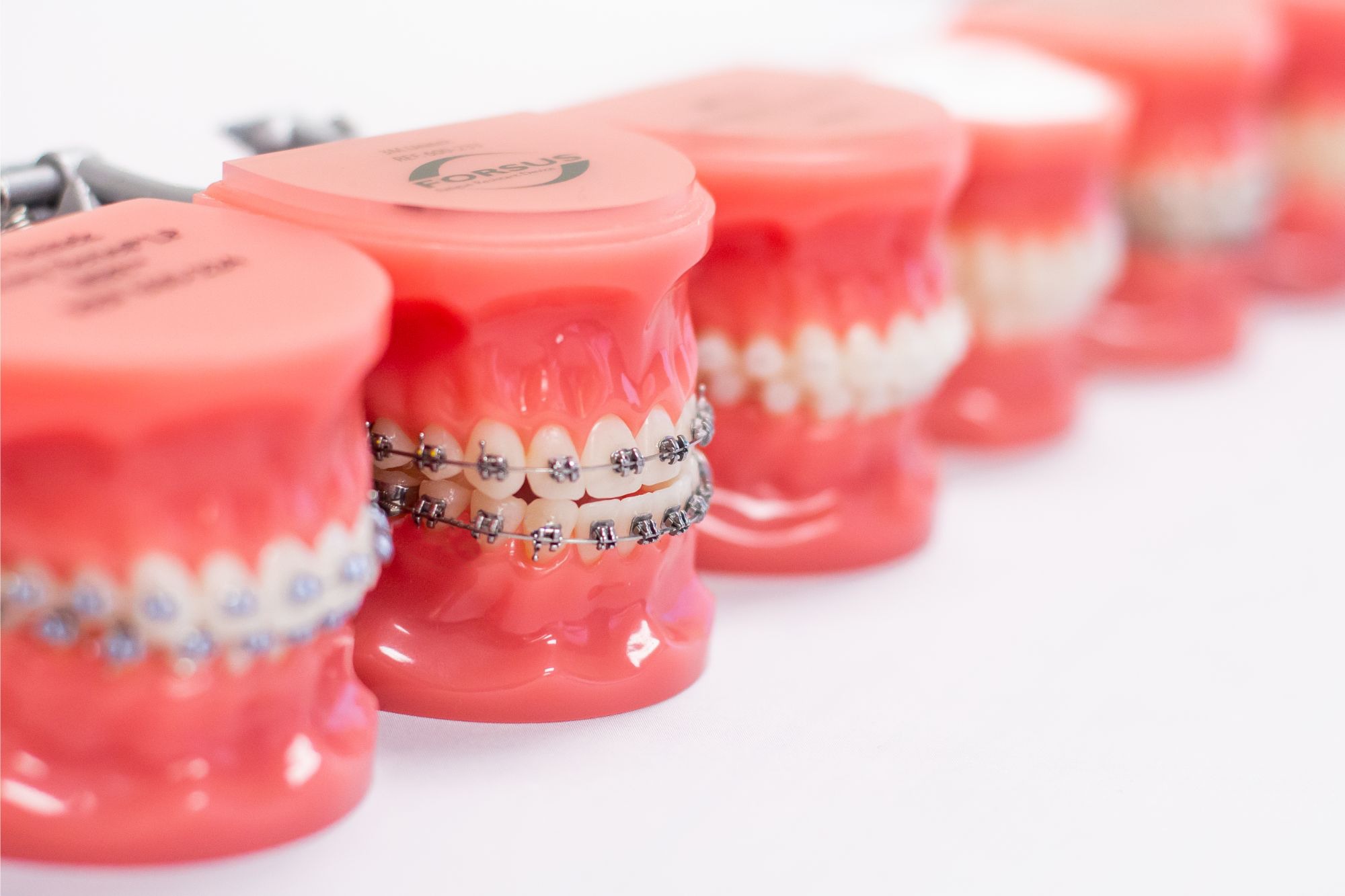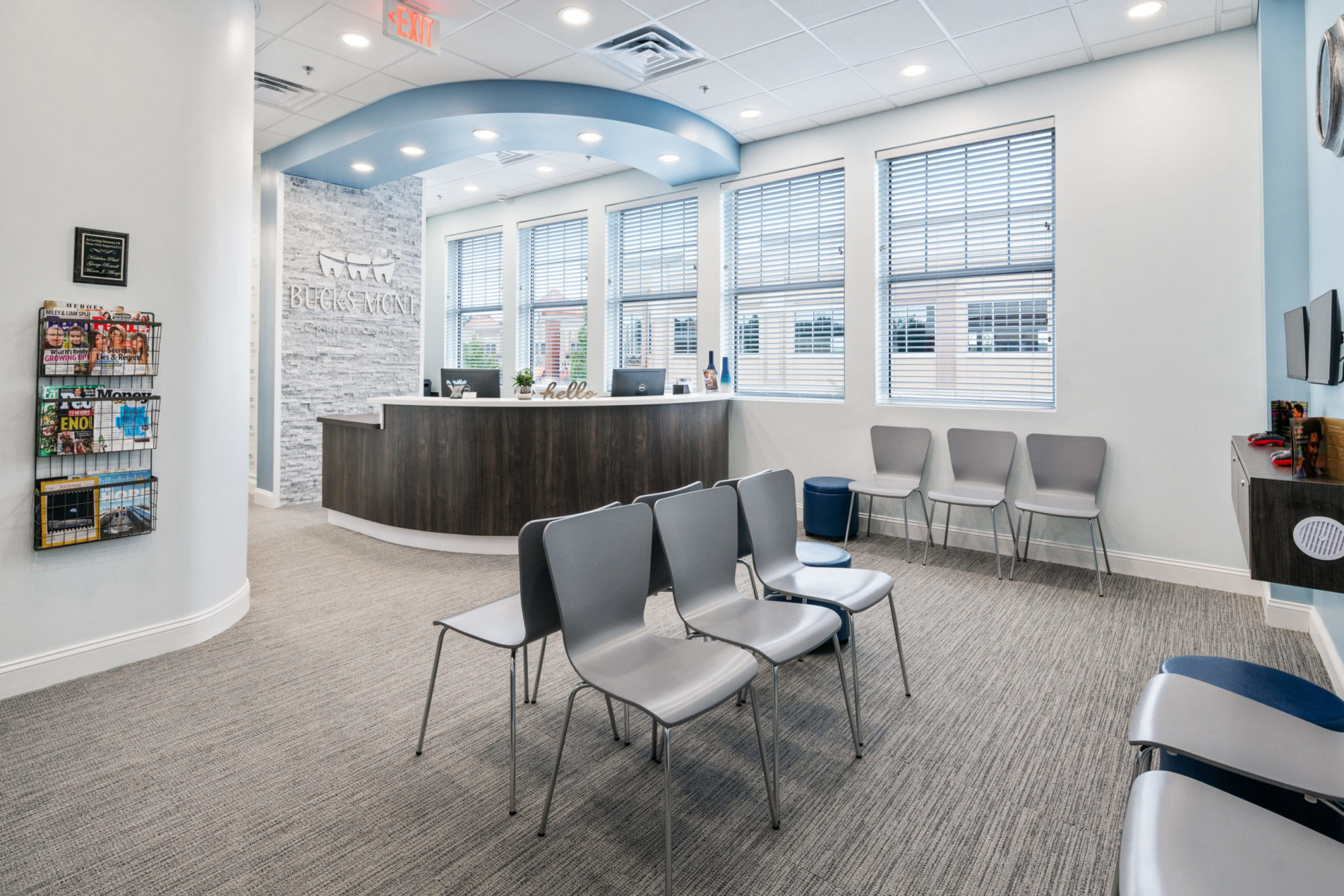If you’ve recently received braces from Bucks Mont Orthodontics or you’re interested in orthodontics in Warrington, Doylestown, or Warminster, you may be wondering what to expect from treatment. Will your braces hurt or make your mouth uncomfortable? We want you to know all the details about your treatment, so our team will break down what you can expect after your braces are applied and when your braces are tightened:
Initial Discomfort After Your Braces Are Applied
The actual process of having your braces applied to your teeth will cause you no pain or discomfort. Dr. Patel will simply bond the brackets to your teeth using dental cement, then run a metal “archwire” through these brackets and hold the wire in place with a series of elastic bands.
Once your archwire is engaged into the brackets and adjusted, you may feel some soreness and discomfort as your teeth begin to move. This is normal, and will go away within a few days, though some patients may feel discomfort for up to a week.
After this, you will likely not feel any discomfort until your next appointment at Bucks Mont Orthodontics. However, it may take some time for you to get used to how your braces and wires feel in your mouth.
If you feel a wire poking your mouth, give us a call or let us know about it at your next appointment. We can trim it or adjust the wire to prevent it from poking you.
What To Do When Your Braces Get Tightened
Usually, your braces will need to be adjusted (tightened) every 4-6 weeks. This can cause some discomfort as your teeth shift and move. Typically, this discomfort is the worst on the day your braces are adjusted, and will fade after a few days.
Plan to eat soft foods during the day your braces are tightened. Depending on the extent of your adjustment, your pain may stop within a day or two, or you may continue to feel some discomfort for a few days.
How To Deal With Braces Pain
If you are experiencing pain and discomfort after your braces are adjusted, there are a few things you can do while you wait for the pain to diminish. We recommend doing things like:
- Taking medicine like aspirin, ibuprofen, naproxen or acetaminophen to help with pain
- Eating softer foods. Chewing hard or tough foods mean you’re placing more pressure on your teeth, which can contribute to discomfort
- Using a topical analgesic (pain reliever) like Orajel. You can apply this to an especially sore part of your mouth to numb it, and get some relief from your discomfort
If you are experiencing discomfort due to a wire or bracket poking your mouth, you can use a product called “dental wax.” Place a small piece of wax on the metal part of your braces that is causing you discomfort. This will smooth it out and prevent pain.
This is only a temporary solution, though. If you are consistently experiencing discomfort or bleeding due to a bracket or wire poking your mouth, make sure you let us know so that we can adjust your braces and eliminate the issue.
Foods To Eat With Sore Teeth
Soft foods that require little chewing are the best for eating with sore teeth. We recommend foods such as:
- Steamed or boiled vegetables
- Yogurt
- Pudding
- Seedless, soft bread
- Thin soups
- Pasta
The tougher and harder a food is, the more discomfort it will cause, so avoid things like tough cuts of meat, chewy vegetables, and other such things. When your pain begins to fade in a day or two, you can add these foods back into your diet.
Know What To Expect From Braces!
Unfortunately, some pain and discomfort will always occur when you get treatment with braces. However, your new smile will be worth it, and your discomfort can be minimized if you follow the above tips. To learn more and see if braces are right for you or your child, contact the team at Bucks Mont Orthodontics now at (215) 398-0794, or stop by our office at 1520 Main Street, Suite 202 Warrington, PA.
 (215) 398-0794
Free Consult
(215) 398-0794
Free Consult



